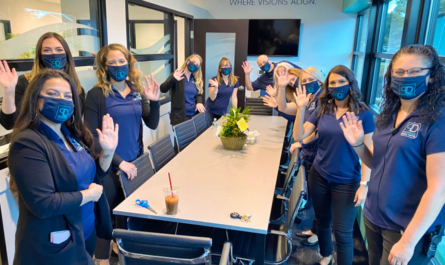Sponsored Content: Planet DDS
By Planet DDS
Facing ongoing staffing challenges, rising expenses, and intensifying competition, dental groups are turning to one key driver of growth and valuation: technology.
By modernizing their tech stacks, forward-thinking organizations are streamlining operations, improving their bottom line, and strengthening their appeal to future investors.
Standardization Drives Same-Store Growth
The days of rack-and-stack EBITDA are gone. Savvy investors want to see growth at the location level, not just in your geography.
Standardizing the tech stack allows practices to:
- Streamline scheduling, billing, and revenue cycle processes
- Reduce errors and inefficiencies from manual workflows
- Improve patient communication and increase appointment retention
- Centralize reporting to identify performance metrics and react quickly
“We are very integrated in terms of our technology and data infrastructure. Our primary practice management system (Denticon) and our analytics tool provide centralized data, real-time visibility across all locations, and demonstrate operational consistency,” said Lorri Detrick, the president and COO of Riccobene Associates Family Dentistry.
The dental group successfully recapitalized in 2024.
“That level of transparency not only streamlined the due diligence process, it helped us command a stronger valuation. Our infrastructure and standardization signaled that we were ready to scale,” she said.
Creating Value and Cash Flow
Today’s investors are more selective than ever. They’re not just buying what your business is now; they are investing in what it can become.
“The sooner you can start standardizing your systems, the more chances you’ll have to optimize your business to create value and cash flow in your day-to-day management, and that will make you more attractive ultimately when you get to the point of wanting to sell,” said Eric Pastan, the former owner of a dental group with 45 locations who now works with private equity companies evaluating acquisitions.
Detrick agrees.
“The more that you can demonstrate that you have an integrated, cohesive system that is replicable as you grow, the more impressive it will be for the potential buyer. They don’t want to see something that was thrown together for the purpose of a sale,” she explained.
Generating Data with High Integrity
Disparate systems make it difficult to access and reconcile data, which impacts both day-to-day operations and future investor interest.
“In order to run a good business, you need to have clean financials, good data, a great culture, all the pillars of your organization,” said Pastan. “The sooner you start on that, the more effective you are going to be growing your business. It’s that strong track record that gives you a good story to tell lenders, investors, and strategic partners.”
Navigating a Cautious Buyer’s Market
Prior to the economic slowdown in mid-2022, high competition among private equity firms and DSOs for quality practices led to fast deal cycles. Due diligence timelines were short, frequently less than 60 days.
That’s no longer the case. With economic uncertainty, tighter credit markets, and higher interest rates, buyers are more selective.
Now, due diligence often takes 120 days, and can take longer.
Investors want to thoroughly validate practice performance, risk, and scalability.
They expect:
- Clean, accessible data
- Standardized operations and tech stacks
- Transparency in clinical and financial performance
The easier it is to share data, the faster the due diligence process will progress.
Disparate Systems Can Be a Deal-Killer
As practice owners know, operating multiple practice management systems, patient communication systems, and billing systems is costly and inefficient. It’s difficult to cross-train team members, create standard operating procedures, and hold people accountable.
When dental groups use a patchwork of technology solutions, it can be a red flag to investors.
Investors worry they’ll need to pour time and money into cleaning up the systems post-acquisition.
“When an investor sees disparate systems that will ultimately need to be integrated, they realize that could be a huge expense,” said Detrick. “That can be a red flag to investors.”
The lack of data integrity can also cause deals to collapse.
“If it’s difficult for you to provide data or if it’s put together haphazardly, then that can be enough for an investor to walk away from the table in a lot of cases,” she added.
Building a High-Functioning Business
Dental groups that invest in centralized, integrated platforms for clinical technology, practice management, patient communications, and data analytics show they’re building a mature, high-functioning business.
It gives dental leaders the ability to refine operations, achieve economies of scale, reduce duplicate efforts, and optimize margins.
And it can lead to a higher valuation and successful transaction, just as it did for Riccobene Associates Family Dentistry.
Scaling Smarter
Whether you’re looking to sell, recapitalize, or invest in your own growth, standardizing your technology infrastructure is one of the most powerful steps you can take today.It’s one factor that can influence your valuation. To learn about other factors, download our eBook, The Strategic Growth Guide for DSOs and Dental Groups.





